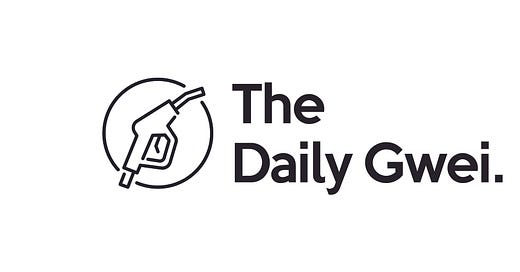Ethereum is many things to many different people but I think the common denominator among all of its use-cases is that Ethereum enables freedom. Now, this isn’t just any type of freedom - this is financial freedom on a global scale - something that hadn’t existed until the advent of Bitcoin (as peer to peer digital cash) and then later on as Ethereum (as programmable money and as a decentralized financial system).
We all know Ethereum as a decentralized, censorship-resistant and permissionless network that literally anyone can use but have you ever thought about what the real value of what we’re building is? Let’s take a step back and break down what all of this really means, how it enables financial freedom, and how these properties aren’t just some buzzwords that people came up with to “shill” their investment.
To start, Ethereum being decentralized means that no individual, group or entity has direct control over the protocol. The network rules are kept in check by thousands of fully validating nodes distributed all over the globe while block production is handled by a diverse set of miners (and in the future, stakers). Decentralization can be difficult to quantify because there are many more moving parts besides who is validating and producing blocks on the network - for a comprehensive breakdown, I recommend reading this piece.
Ethereum’s censorship-resistance properties are critical for protecting every users right to perform any transaction they want on the network (providing those transactions follow the network rules). For example, this censorship-resistance allows users in countries with capital controls to get money out or to send money to loved ones in sanctioned countries. This also allows these same people to access various financial services that they may not have access to in their home country (such as accepting digital payments for their work). They can also do all of this in a non-custodial way, they don’t have to ask anyone’s permission and they have strong guarantees that their transactions won’t be censored.
Finally, Ethereum’s permissionless nature (enabled by its decentralization and censorship-resistance) allows anyone to build whatever they want on the network. The only costs involved with this are the costs to deploy the smart contracts to the network. For something like Uniswap, this is a one-time deployment cost and then the code runs as designed forever with no central party or authority able to alter, remove or stop it. In saying that, these costs can be quite high today (sometimes thousands of dollars) but, of course, layer 2’s on Ethereum will solve these issues.
When we bring all of these properties together, they enable the freedom that we all get to enjoy every time we use the Ethereum network. No matter what your race, skin color, sexuality, political affiliations, geographic location is - every single human (and robot!) is treated equally by the Ethereum network. Not only is there equal access to Ethereum, but Ethereum also dramatically lowers the barrier of entry to financial services and essentially puts a Swiss bank account in everyone’s pocket (via their smartphone). Furthermore, Ethereum cuts out all middle-men and allows for a fully circular digital economy to exist that is unencumbered by centralized vested interests or complex geopolitical issues.
It’s probably still a bit early to be claiming victory over the centralized incumbents but I think the picture I painted above is of a reality that will continue unfolding over the coming years. Eventually, every single human on the planet will have access to Ethereum’s freedom economy via a smartphone and an internet connection - just imagine what this decentralized financial system will enable once it scales to power the entire world - I can’t wait to see it!
Have a great day everyone,
Anthony Sassano
Join the Daily Gwei Ecosystem
All information presented above is for educational purposes only and should not be taken as investment advice.






Simple, publicly available information, but collected in one complete thought, helps to move more easily in this space and with a more confident look at the future of this story. Thanks for the articles.